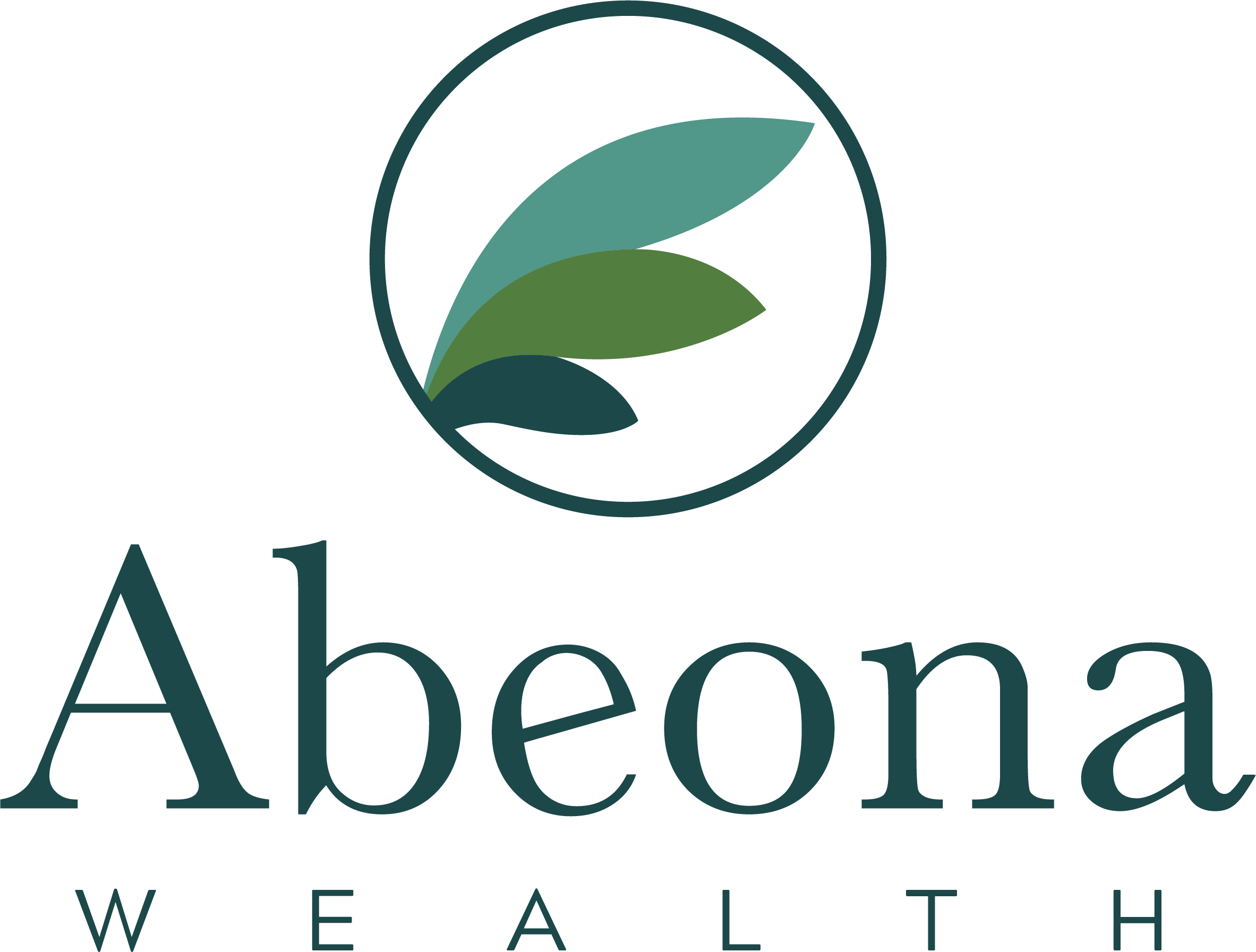15 Financial Terms Everyone Should Know
Somewhere between algebra and dissecting frogs, most of us missed the class on “How Money Actually Works,” probably because there wasn’t one! And yet, the language of finance follows us everywhere, whether it’s picking benefits at a new job, opening an investment account, or figuring out how to finally pay off those student loans. The terms can feel dense, but once you crack them open, they’re not nearly as intimidating as they sound.
Financial literacy isn’t about showing off at dinner parties. It’s about being able to look at your own numbers and know what’s going on. It’s about seeing the difference between debt that weighs you down and credit that gives you flexibility. It’s about understanding how your retirement savings grow and how much of your paycheck is actually yours after taxes.
At Abeona Wealth, we believe financial knowledge is power—and that power should belong to everyone. We’ve pulled together some of the most practical financial terms to help you cut through the jargon and focus on what really matters: using your resources to build the life you want.
Here are 15 key terms to keep in your toolkit.
- Beneficiary
The person (or people) you name to receive your money or assets when you’re gone. Think retirement accounts, life insurance policies, or a will. Naming beneficiaries correctly keeps your wishes clear and helps avoid unnecessary headaches for your family.
- Compound Interest
Interest that builds on itself. If you save $1,000 and it earns 5% in a year, you’ll have $1,050. Next year, you earn interest on the full $1,050, not just the original $1,000. Over time, this “interest on interest” snowballs, making it one of the most potent forces in growing wealth.
- 529 Plan
A tax-advantaged savings account designed for education expenses. Parents (or grandparents) can deposit money, let it grow tax-free, and use it later for tuition or other qualified expenses. With college costs rising, 529s are a lifeline for many families.
- Estate Plan
Not just for the ultra-wealthy. An estate plan is your roadmap for what happens to your assets, children, or care wishes if you pass away or become incapacitated. It can include a will, power of attorney, healthcare directives, and trusts.
- Emergency Fund
Money set aside for life’s curveballs, such as car repairs, medical bills, or an unexpected job loss. A good rule of thumb is to aim for three-six months of essential expenses in a savings account that you can access quickly and easily. Three months may be appropriate for a dual-income family with steady income while six months might be better for a single earner household or one with uneven income.
- Fiduciary
A fancy word for “someone legally required to put your interests first.” Financial advisors who act as fiduciaries are bound to give advice that benefits you, not their bottom line. (Yes, Abeona is proudly fiduciary.)
- Inflation
The gradual rise in prices over time. It’s why groceries, rent, or childcare costs seem higher every year. Inflation matters because it quietly eats into your purchasing power, so your money needs to grow faster than inflation to keep up. Taking stock market investment risk is one way to outpace inflation risk.
- Liquidity
How quickly something you own can be turned into cash. Cash itself is the most liquid asset; your house is much less so because it takes time to sell. Having some liquid assets on hand helps you stay flexible when opportunities or emergencies arise.
- Net Worth
A snapshot of your financial health. Add up everything you own (assets), subtract everything you owe (liabilities), and you get your net worth. Tracking it over time helps you see progress toward your goals. Beyond your tangible net worth, don’t forget that your future earnings are often your biggest asset early on, and spending more than your income is a liability.
- Risk Tolerance
Your comfort level with market fluctuations. Some people lose sleep when their portfolio dips 5%; others shrug it off. Knowing your tolerance helps guide the right investment mix for you.
- Diversification
The strategy of not putting all your eggs in one basket. By spreading your investments across different asset types (such as stocks, bonds, and real estate), you reduce the likelihood that one bad year or one bad investment derails your entire plan.
- Cash Flow
The movement of money in and out of your life each month. Positive cash flow means you’re earning more than you’re spending (and can save or invest the difference). Negative cash flow means you’re dipping into reserves or debt. Knowing your numbers includes knowing what your lifestyle costs.
- Required Minimum Distribution (RMD)
The minimum amount retirees must withdraw each year from certain retirement accounts (like 401(k)s or traditional IRAs) once they hit a certain age. It ensures the IRS eventually collects taxes on the money you deferred.
- Tax-Deferred vs. Tax-Free
Two very different ways your money can grow in retirement accounts:
- Tax-deferred: You postpone paying taxes until you withdraw (think 401(k)).
- Tax-free: You pay taxes now but not later (think Roth IRA).
The right mix depends on your income now and what you expect it to be in the future. A third option would be investing in a taxable brokerage account in which interest, dividends, and realized gains are taxed each year.
- Power of Attorney
A legal document that gives someone you trust the authority to make financial or healthcare decisions on your behalf if you can’t. It’s a cornerstone of a thoughtful estate plan.
Why It Matters
Financial literacy doesn’t mean memorizing every term in the dictionary. It means understanding enough to ask the right questions, spot opportunities, and feel confident in the choices you make.
Whether you’re saving for a child’s future, planning for retirement, or charting your next business move, knowing the language of money is a decisive step toward building the life you want. Reach out to Abeona Wealth to continue the conversation.

